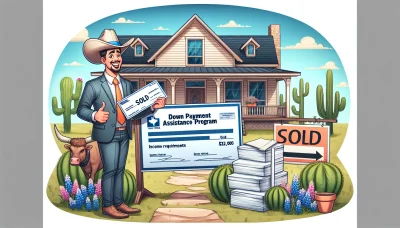Real estate trading Quiz
Test Your Knowledge
Question of
Understanding Real Estate Trading
Basics of Real Estate Trading
What is Real Estate Trading?
Real Estate Trading involves the buying and selling of real estate properties in a short time frame with the aim of making a profit. It's a strategy that focuses on market trends and timing rather than long-term holding.
How Does Real Estate Trading Differ from Traditional Real Estate Investing?
Unlike traditional real estate investing, which often involves purchasing property to hold for rental income or long-term capital appreciation, real estate trading is centered around quick turnover. Traders typically seek to capitalize on market conditions or property improvements to sell at a profit in a shorter period.
Types of Real Estate Trading
Fix-and-Flip Strategy
This strategy involves purchasing properties that are in need of repair, renovating them, and then selling them at a higher price. The focus is on properties that can be quickly improved to increase their value.
Wholesale Real Estate Trading
Wholesaling in real estate involves entering into a contract to buy a property and then selling the purchase contract to another buyer before the closing date. The wholesaler makes a profit from the difference in the contract price and the sale price to the end buyer.
Getting Started in Real Estate Trading
Building a Solid Foundation
-
Education and Training for Real Estate Traders
Entering the real estate trading world requires a solid understanding of the market and its dynamics. Prospective traders should focus on specialized courses and training programs that cover the basics of real estate, market analysis, and investment strategies.
-
Understanding Market Analysis
Market analysis is crucial for successful real estate trading. This involves studying market trends, understanding the factors that influence real estate prices, and identifying potential opportunities for investment. Traders should become proficient in analyzing market data and making informed decisions.
Setting Up Your Real Estate Trading Business
-
Legal Considerations and Structure
Choosing the right legal structure for your real estate trading business is essential. This decision can affect your liability, taxation, and ability to raise capital. It's important to consult with legal professionals to determine the most suitable structure for your business objectives.
-
Financing Your Real Estate Trades
Funding is a critical aspect of real estate trading. Traders need to explore various financing options, including loans, partnerships, and investment pools, to support their trading activities. Understanding the pros and cons of each financing method is key to managing financial risk and ensuring the growth of your real estate portfolio.
Strategies for Successful Real Estate Trades
Market Research Techniques
- Identifying Emerging Markets
- Analyzing Neighborhood Trends
Risk Management in Real Estate Trading
- Mitigating Financial Risks
- Dealing with Property-Specific Risks
The Role of Technology in Real Estate Trading
Tools for Market Analysis and Decision Making
- Software for Real Estate Traders
- Utilizing Big Data in Property Trading
Online Platforms and Marketplaces
- Digital Platforms for Buying and Selling Properties
- Networking and Building Relationships Online
Legal and Ethical Considerations
Navigating Real Estate Laws and Regulations
- Understanding Zoning Laws
- Compliance with Fair Housing and Ethics Standards
Contracts and Negotiations in Real Estate Trading
- Drafting and Reviewing Purchase Agreements
- Effective Negotiation Strategies for Traders
Financing Options for Real Estate Traders
-
Traditional Financing Methods
- Bank Loans and Mortgages for Traders
- Private Lenders and Hard Money Loans
-
Creative Financing Solutions
- Seller Financing in Real Estate Trades
- Lease Options and Subject-To Agreements
Maximizing Profits in Real Estate Trading
Cost-Effective Renovation and Remodeling Tips
Budgeting for Renovations
Effective budgeting is crucial for renovation projects to ensure they enhance property value without overspending. Start by evaluating the property's needs versus wants, focusing on improvements that increase value. Allocate funds for unexpected costs to avoid financial strain.
High-ROI Improvement Projects
To maximize returns, prioritize projects with high return on investment (ROI). These include kitchen and bathroom updates, enhancing curb appeal, and adding energy-efficient features. Such improvements appeal to buyers and can significantly increase a property's market value.
Exit Strategies for Real Estate Traders
When to Sell vs. When to Hold
Deciding whether to sell or hold a property depends on market conditions, equity accumulation, and investment goals. Selling might be favorable in a seller's market or when the property has appreciated significantly. Holding could be advantageous for rental income or waiting for further appreciation.
Calculating Profit Margins and Timing the Market
To maximize profits, understand market trends and calculate potential profit margins before selling. Consider factors such as renovation costs, property appreciation, and market demand. Timing the market can be challenging, but informed decisions based on research and analysis can lead to successful outcomes.
Building a Network and Reputation in Real Estate Trading
-
Networking with Industry Professionals
- Joining Real Estate Investment Groups
- Attending Trade Shows and Conferences
-
Marketing Your Real Estate Trading Business
- Building an Online Presence
- Leveraging Testimonials and Case Studies












